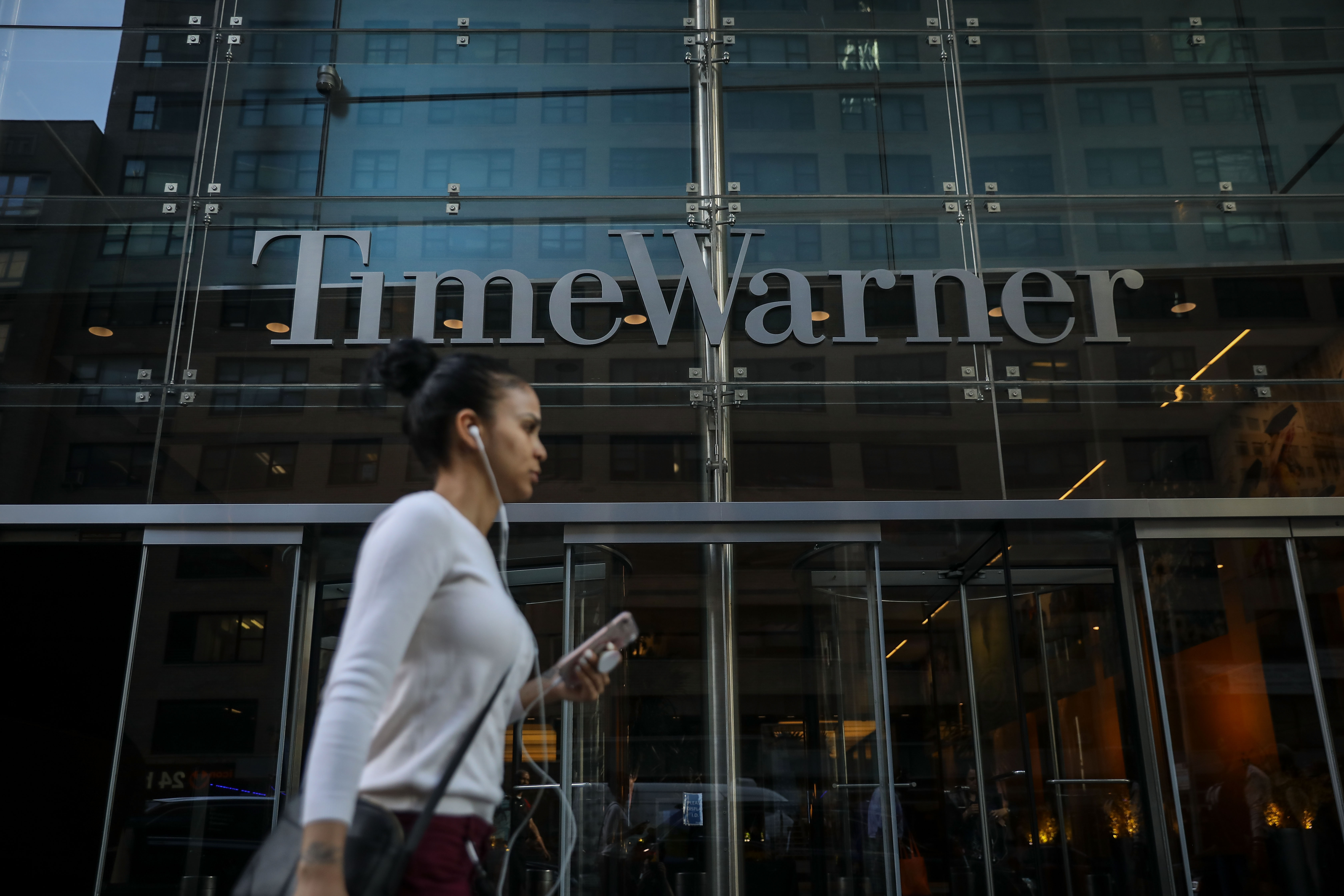Green light for AT&T-Time Warner deal may lead to more big deals
Photo: () | ©AFP
Washington (AFP) – The court approval for the mega-merger of telecom-broadband giant AT&T with media-entertainment conglomerate Time Warner opens the corporate chessboard for more dealmaking and diminishes the prospects for a major antitrust action against Big Tech firms.
US District Judge Richard Leon on Tuesday dismissed the government’s challenge to the $85 billion deal, saying a seven-week trial produced no evidence the tie-up would harm competition, in a stinging defeat for the US Justice Department’s antitrust division.
While an appeal remains possible, the companies said they expect to close the merger by June 20.
But even before the deal becomes final, the ruling sets the stage for more deals in the media and communications sector facing rapid changes from Silicon Valley and new internet-based platforms.
“The impact from this decision will have wide-reaching ramifications across the telecommunications, media and tech industry for decades to come,” said Daniel Ives of GBH Insights.
Larry Downes of the Georgetown University Center for Business and Public Policy said that the AT&T victory could trigger more deals.
“It’s a pinball machine and the ball just bounced off another number,” he said.
“I think now you’ll see other incumbent distribution companies will definitely be looking for content assets.”
AT&T, which is the largest US pay-TV operator and second-largest wireless carrier, gets the huge media empire of Time Warner, including the Warner Bros. film studios, HBO premium channel, Cartoon Network and the Turner cable channels including CNN.
– ‘Pipes’ and content –
Consumer groups had backed the government’s case, arguing that the merging of “pipes” — the electronic conduits into people’s homes — and “content” could lead to higher prices. But backers of the deal claimed the tie-up could yield more innovative ways to deliver programming.
With a new powerhouse on the scene, other companies are unlikely to sit still.
Comcast, the largest US cable operator and owner of NBCUniversal, has signaled it will launch a bid for film and television assets of 21st Century Fox, topping a $52 billion offer for those operations from Walt Disney Co.
Ives said in a research note that the bidding “will propel the eventual winner to become a major streaming player and content-rich behemoth for years to come.”
It could trigger more consolidation in a sector where scale is seen as important in competing with traditional players as well as emerging tech platforms. Companies that could be looking for partners include media giants CBS and Viacom, and cable operator Charter.
Ed Black, president and chief executive of the Computer & Communications Industry Association, said the ruling could spur a number of mergers, although not necessarily in the tech sector.
“The temptation to merge is going to be greater in those areas that have legacy-dominant industries that are not growing through innovation,” Black said.
“The highly innovative companies may not need to merge to grow.”
Judge Leon’s decision is the first in decades in a “vertical” merger of companies without overlapping operations, and could set a benchmark.
It could have implications for vertical tie-ups in other sectors, including a $69 billion deal between pharmacy giant CVS and health insurer Aetna, and a $52 billion tie-up between insurance group Cigna and medical benefits group Express Scripts.
– To appeal or not? –
The Justice Department was humbled by a court ruling that went entirely in favor of AT&T and Time Warner and which imposes no conditions on the merger. The department now faces a stark choice on whether to appeal.
“I think it’s a pretty huge loss for the Justice Department,” said Christopher Sagers, a Cleveland State University law professor specializing in antitrust.
“If DOJ chooses not to appeal or loses on appeal, then I think it’s fair to say that vertical merger enforcement is effectively dead.”
Sagers said Leon’s ruling, if allowed to stand, could chill speculation of antitrust action against any of the Big Tech platforms such as Google or Amazon.
“It is possible that this ruling will temper the agencies’ willingness to take on certain really big challenges that they otherwise might have,” he said.
“Cases like that would be very risky and resource-intensive. If DOJ had won this case (or wins on appeal), that would have probably been very popular with the public and emboldening to the agencies, and it would have increased the odds of them doing other big things.”
Maurice Stucke, a former antitrust lawyer with the Justice Department who now teaches at the University of Tennessee, said he sees a strong possibility of appeal because of the narrow legal basis for the decision.
“They have a good basis for raising an appeal,” Stucke said, noting that this was the first court ruling in a vertical merger case in decades. “This is an area that could benefit from clear law.”
Disclaimer: This story has not been edited by Siliconeer and is published from a syndicated feed. Siliconeer does not assume any liability for the above story. Validity of the above story is for 7 Days from original date of publishing. Content copyright AFP.


